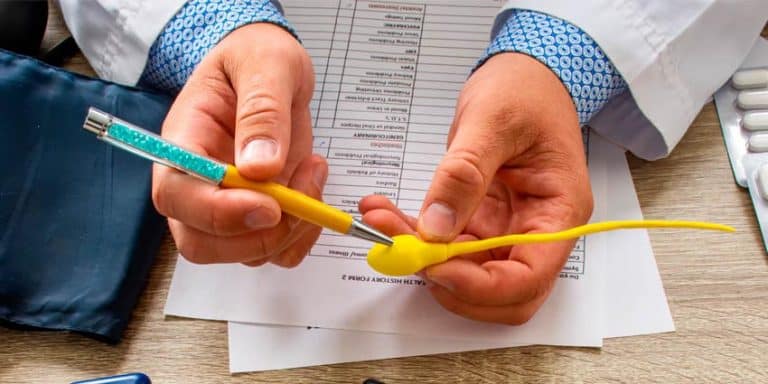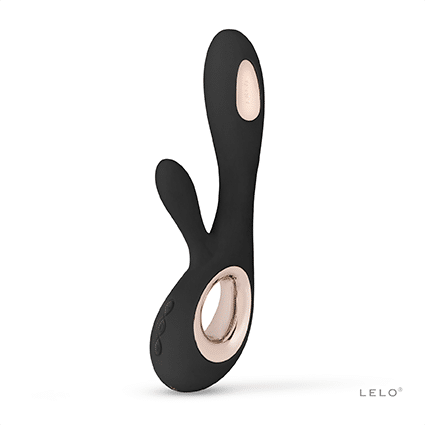 This article was medically reviewed by Dr. Justin Lehmiller, a social psychologist, researcher and award-winning educator. For more information:
This article was medically reviewed by Dr. Justin Lehmiller, a social psychologist, researcher and award-winning educator. For more information:
Website | Publications | Instagram
“I’ll get a vasectomy if needed.”
Those words stunned me to silence for a moment after my new sexual partner said it to me. We were having a conversation about which form of birth control we want to use when we have sex.
I’ve never been on hormonal contraceptives, and the idea of getting an IUD without anesthesia makes my knees weak (and not in a good way), so the only type of protection I used in the past was condoms.
Even though I’m young, I don’t intend to have children and plan to get my tubes tied. I shared that with my new sexual partner and told him that while it’s an option in most countries in the world, it’s still a contraceptive method that’s hard to obtain for women.
In the UK, female sterilization is legal, but good luck finding a doctor or a clinic to get it done, especially if you’re a single childless woman under 30 years old. The number of women getting sterilized has dropped by 26% since 2008/09, and all that is due to the procedure becoming harder to get. Some physicians appear increasingly reluctant to offer the procedure to younger women for various reasons, such as concern over whether the patient might later change their mind about wanting to have children.
Doctors often encourage women who seek sterilization to consider other reversible contraceptive forms, such as the pill, the implant, or an IUD. Sexually active women are generally aware of all different types of contraceptives and the potential side effects that they have to suffer; however, their partners often are not as educated on the matter.
“Contraception is both of our responsibility. However, in the end, the choice of which method you’d want us to use is yours because it affects your body the most,” my new partner said at the end of our conversation. And he is not wrong.
While choosing the right birth control and safe sex method is both partners’ responsibility, in hetero relationships, women are the ones that carry the burden of side effects, having to take Plan-B, which can be an unpleasant experience, and having to worry about pregnancy.
Recent events around the world create more risk for women than before. For example, in the US, the Supreme Court decided to overturn women’s constitutional right to abortion. In Poland, the government not only banned abortions but also created a “pregnancy registry” requiring doctors to record all pregnancies in a government database. And in the UK, conservative party members have expressed their opinions that women do not have an “absolute right to bodily autonomy.”
In light of all of this, vasectomies have become a form of birth-control that heterosexual couples are increasingly pursuing.
Vasectomies are appealing to many because they remove the onus of birth control from women, are generally cheaper and more accessible than female sterilization, and can potentially be reversed if desired (although this isn’t guaranteed—more on this below).
However, a common worry that men have when it comes to having their tubes snipped is that they’ll all of a sudden might lose their sex drive. But research shows that vasectomies are not linked to having a worse sex life. On the contrary, it’s quite the opposite – couples where a partner had a vasectomy actually report having more sex, and both men and women alike report increases in sexual satisfaction.
These findings are not surprising. Many women have issues with anxiety and stress related to their bodies and life in general, which sometimes interferes with their ability to enjoy sex to the fullest. If the worry about getting accidentally pregnant is removed, then there is one less stress factor to consider.
Also, if women don’t have to deal with the side effects of contraceptive methods like pills or implants, they might be more in the mood for sex overall.
And let’s just admit that a man taking full responsibility for his and your sexual health and wellbeing is something that many women may find to be hot and… sexually arousing. As Dr. Pastuszak, a urologist and a reproductive specialist at the University of Utah, puts it: “Women do so much. A woman, in today’s day and age, is still very often both a career person as well somebody who takes care of the kids, raises the kids and runs the household. A guy can step up and do his part.“
And lastly, vasectomy is way cheaper than female sterilization. In the UK, it’s free of charge with the NHS, and if you go private, it will cost between £500 and £800. The NHS also covers sterilization but is harder to obtain because doctors can refuse you. And if you go private, the cost can go up to £4,000.
My new sexual partner happens to be on the same page when it comes to wanting biological kids – neither he nor I want to have kids, so it’s no surprise that he suggested it as an option for birth control. But what if you do want kids in the long run? Is the vasectomy a reversible option?
One common misconception about vasectomies is that they are 100% reversible, unlike female sterilization. However, the reality is quite different. Studies show that vasectomies are not as easily reversible as we believe, and the longer the period between the vasectomy and its reversal, the less possible it is.
The official NHS (UK’s National Health Service) website advises to “Only have a vasectomy if you’re sure that you don’t want more, or any, children. It should always be seen as permanent.“
Vasectomies as a birth control method are not the perfect choice for all heterosexual couples. If you are unsure if you want kids or know that you will want them in the future, then getting a vasectomy might not be worth the risk of the reversal failing. This is also why some men seeking vasectomies freeze their sperm first, which provides a backup in case a vasectomy can’t be successfully reversed.
With my current partner, I strongly considered getting a contraceptive implant to avoid using condoms. While sex is still pleasurable with condoms, there is a difference in the sensation at the end of the day. It’s minor, but it’s still there. And the interruption in the middle can get you out of the moment. These are the potential downsides of condoms.
With the contraceptive implant, the side effects are much too severe for my preference and include things like irregular or absent periods, acne, side effects like nausea, breast tenderness, etc., during the first few months.
After a few conversations with my new partner, we are sticking with the condoms for now. But the vasectomy conversation is still on the table.
Deciding which contraceptive method is the right for you has to start with an honest conversation about it with your partner. No blaming or shifting the responsibility. Just an honest discussion that acknowledges all the possible outcomes and side effects before making decisions that affect each person’s body.
Discover pleasure with:







